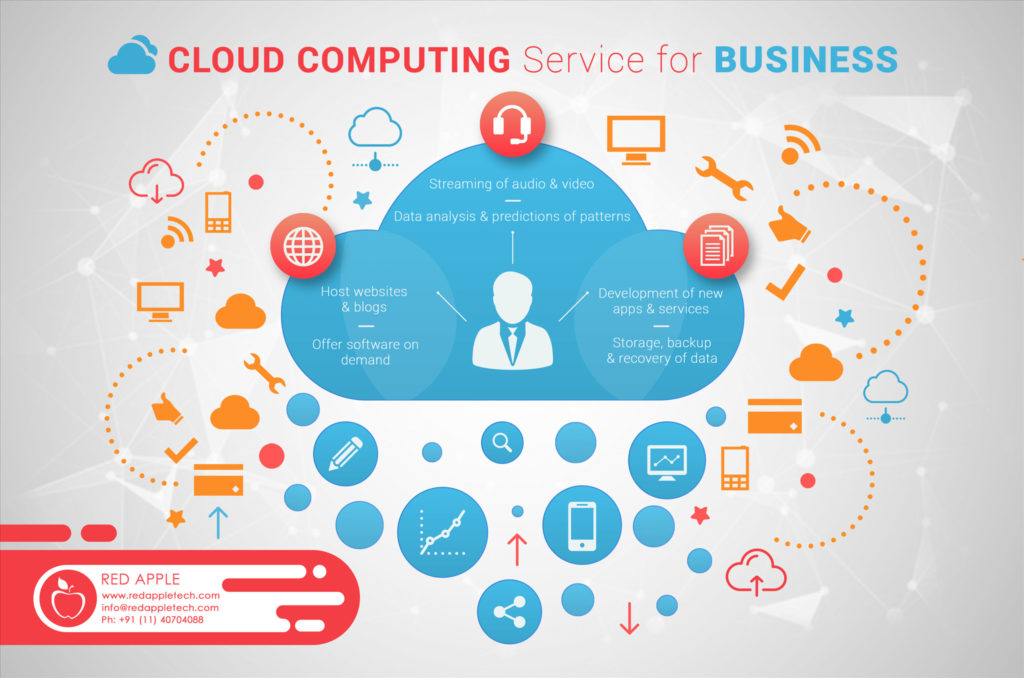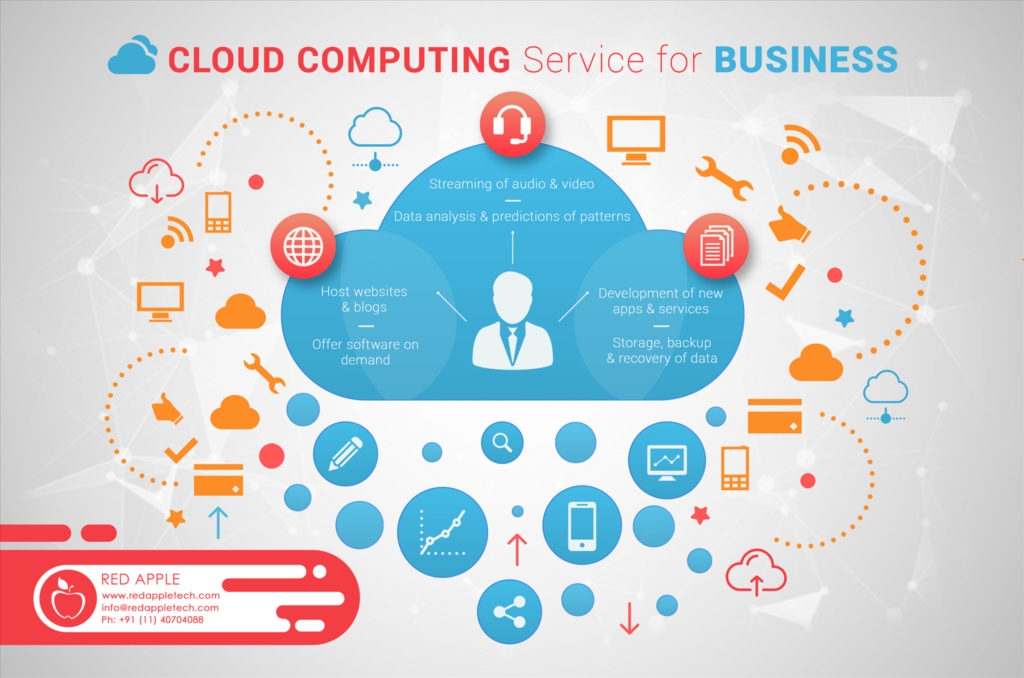Unlocking the Power of Cloud Computing for Small Businesses: A Comprehensive Guide
In the fast-paced digital landscape, small businesses are increasingly turning to cloud computing as a strategic solution to level the playing field with larger competitors. Best cloud computing services for small business offer a myriad of benefits, including access to cutting-edge technology, cost-effective IT solutions, enhanced collaboration tools, and robust data security measures. By understanding how to choose the right cloud provider and leveraging top services, small business owners can streamline operations, boost productivity, and drive growth in an ever-evolving market.

Unleashing the Potential of Cloud Computing for Small Businesses
Cloud computing presents small businesses with a gateway to sophisticated technology and resources typically reserved for larger enterprises, all without the need for substantial initial capital investments. This accessibility to enterprise-grade solutions empowers small businesses to compete on a more level playing field, fostering innovation and growth in a dynamic market environment. The scalability and flexibility inherent in cloud services enable businesses to swiftly adapt to evolving requirements and scale operations efficiently to meet growing demands, ensuring agility and competitiveness in today’s fast-paced business landscape.
Embracing cloud computing translates to notable cost savings for small businesses, offering a compelling alternative to traditional on-premises infrastructure setups. By leveraging cloud services, businesses can significantly reduce IT expenditure and maintenance overheads, as the burden of hardware upgrades, software updates, and system management is offloaded to the cloud provider. This streamlined approach not only optimizes operational expenses but also frees up financial resources that can be redirected towards core business activities, driving profitability and sustainable growth in the long run.
Furthermore, cloud computing fosters a culture of collaboration and seamless data sharing within small businesses, transcending geographical boundaries and enhancing team productivity. With cloud-based collaboration tools and shared storage solutions, employees can collaborate in real-time on projects, access information from anywhere at any time, and work cohesively towards common goals. This interconnectedness promotes innovation, accelerates decision-making processes, and nurtures a more agile and efficient workflow, ultimately propelling small businesses towards success in a digitally interconnected world.

Choosing the Right Cloud Provider for Your Business
When venturing into the realm of cloud computing for small businesses, it’s vital to evaluate providers based on key factors such as reliability, security, scalability, and cost structures. Research various providers, comparing their offerings meticulously to align with your business requirements. Additionally, prioritize assessing customer support quality and the provider’s technical expertise to guarantee prompt assistance when needed. Moreover, verify industry-specific certifications and compliance standards to uphold data security and operational reliability.
By meticulously examining these aspects, small business owners can make informed decisions and select a cloud provider that not only meets their current needs but also scales with their future growth. Remember, the right cloud provider can significantly impact your business operations by ensuring seamless integration, robust security measures, and reliable support, ultimately propelling your business towards innovation and success in the realm of cloud computing for small businesses.

Top Cloud Computing Services for Small Businesses
Amazon Web Services (AWS)
Amazon Web Services (AWS) stands out for its extensive range of cloud services tailored to businesses of all sizes. From scalable storage solutions to powerful computing capabilities and advanced data analytics tools, AWS offers a comprehensive suite that empowers small businesses to optimize their operations efficiently and cost-effectively within the cloud environment.
Microsoft Azure
Microsoft Azure is a top-tier cloud computing service known for its robust hybrid cloud offerings and seamless integration with enterprise applications. Small businesses benefit from Azure’s flexible infrastructure, superior data management features, and extensive compliance certifications, making it a reliable choice for those looking to leverage the cloud for enhanced productivity and growth.
Google Cloud Platform (GCP)
Google Cloud Platform (GCP) is an ideal cloud solution for small businesses that already utilize Google Workspace and rely on AI/ML applications. With GCP, businesses can access cutting-edge artificial intelligence and machine learning tools, advanced data analytics capabilities, and seamless integration with other Google services, providing a holistic cloud ecosystem to drive innovation and streamline operations.
DigitalOcean
DigitalOcean caters to startups and small businesses with its user-friendly platform and affordable pricing structure. Offering a straightforward approach to cloud computing, DigitalOcean provides easy-to-use tools, scalable infrastructure, and cost-effective solutions tailored to meet the specific needs of small businesses, enabling them to deploy applications and manage workloads with simplicity and efficiency.
Incorporating these top cloud computing services into your business strategy can revolutionize the way you operate, introducing efficiency, scalability, and innovation to drive growth and success in today’s competitive market landscape.

Essential Tips for Getting Started with Cloud Computing
Understanding Your Business Needs and Goals
Before venturing into cloud computing, establish clear objectives. Identify areas where cloud services can enhance efficiency. Analyze scalability needs, data security requirements, and collaboration tools that align with your business model. Understanding your needs upfront ensures a smoother transition and maximizes the benefits of cloud computing for small businesses.
Choosing the Right Cloud Provider
Selecting a cloud provider that fits your business requirements is paramount. Evaluate offerings, scalability options, data security measures, and customer support. Consider costs carefully and opt for a provider that offers a flexible pricing model to accommodate your growth. Compatibility with your existing systems is crucial for seamless integration.
Gradual Migration of Data and Applications
To minimize disruptions, consider migrating data and applications gradually. Start with non-critical systems to test the waters. Develop a migration plan ensuring data integrity and security. Collaborate with your cloud provider for a smooth transition, keeping downtime to a minimum while optimizing performance.
Monitoring Usage and Optimizing Resources
Regularly monitor cloud resource usage to optimize costs. Utilize analytics tools provided by your cloud provider to track usage patterns and make adjustments accordingly. Implement automated scaling to adjust resources based on demand, ensuring efficient resource utilization without overspending on unnecessary capacities. Constant optimization leads to cost savings in the long run.

Real-World Success Stories in Cloud Computing for Small Businesses
Transformative Impact of Cloud Computing:
Small businesses like XYZ Marketing witnessed a paradigm shift after integrating cloud computing. By migrating to the cloud, they streamlined operations, leading to a 30% increase in productivity. Cost savings were substantial, with a 20% reduction in IT expenses, enabling greater investment in strategic growth initiatives.
Improved Customer Service and Flexibility:
ABC Consulting embraced cloud solutions, revolutionizing customer service. With enhanced data accessibility, they improved response times by 40%, enhancing client satisfaction. The flexibility of cloud platforms allowed for seamless scalability, accommodating business fluctuations with ease, ensuring uninterrupted service delivery.
Enhanced Data Security and Disaster Recovery:
DEF Services prioritized data security through cloud adoption. They experienced strengthened protection against cyber threats with advanced encryption protocols. Moreover, robust disaster recovery mechanisms ensured minimal downtime during unforeseen events, safeguarding critical business continuity.
Innovation and Competitive Edge:
GHI Technologies gained a competitive edge through cloud innovation. By leveraging integrated cloud services, they accelerated product development cycles by 50%, outpacing competitors. Cloud-enabled collaboration enhanced team efficiency, fostering a culture of innovation and continuous improvement.
Sustainability and Scalability:
LMN Fashion Boutique achieved sustainability and scalability with cloud solutions. By transitioning to the cloud, they reduced their carbon footprint by optimizing resource utilization. Scalability enabled them to expand globally, supporting seamless business growth without compromising operational efficiency.

